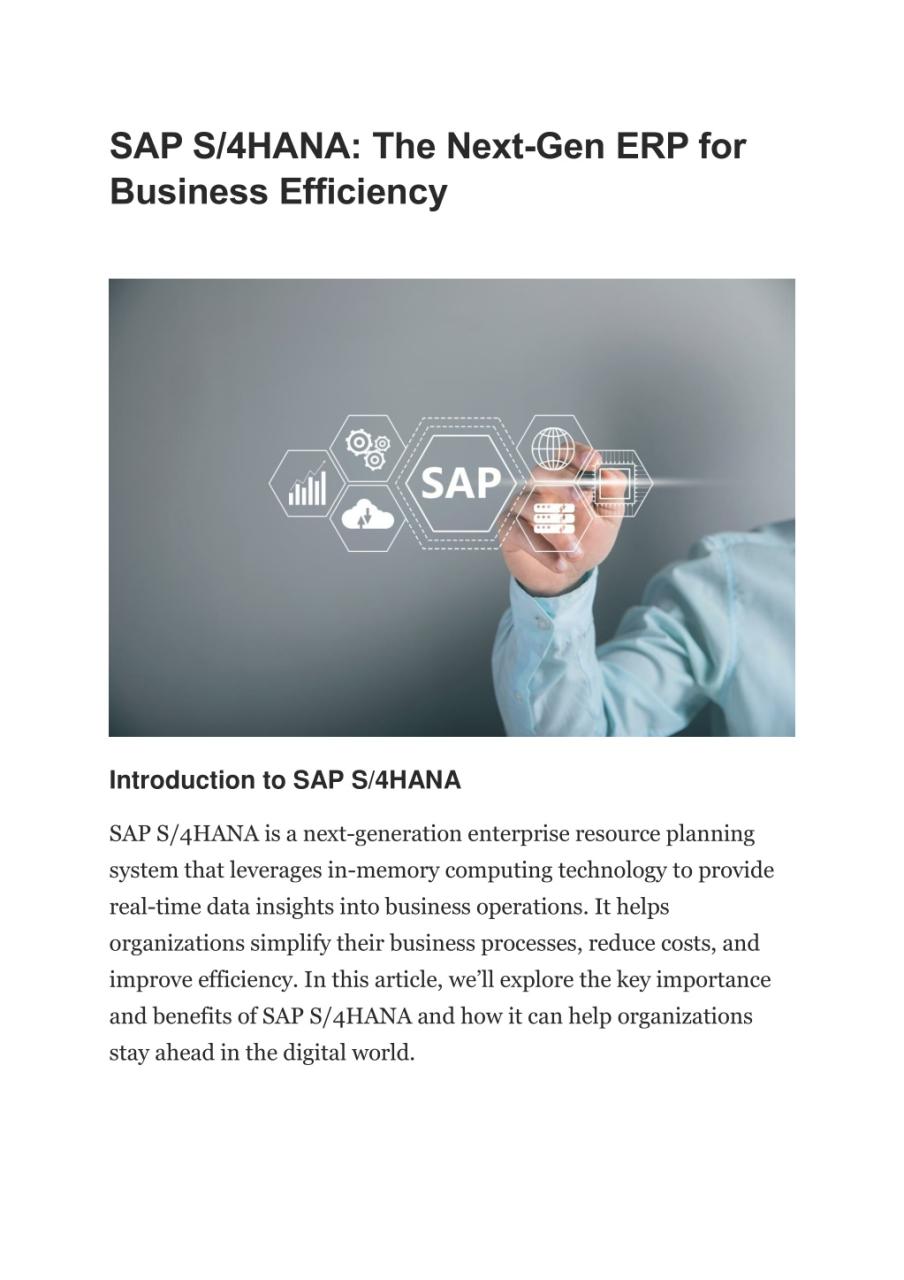Enterprise Resource Planning (ERP) Software: A Comprehensive Guide
What is ERP Software?
Enterprise resource planning (ERP) software is a comprehensive business management solution that integrates all core business processes into a single, unified system. It provides real-time visibility and control over all aspects of an organization, including financials, supply chain management, manufacturing, project management, and human resources.
Benefits of ERP Software
- Improved Efficiency: ERP streamlines business processes, eliminating manual tasks and reducing errors.
- Increased Productivity: Real-time data and insights enable faster decision-making and improved collaboration.
- Enhanced Visibility: ERP provides a single source of truth for all business data, allowing for better decision-making and planning.
- Reduced Costs: ERP can reduce operating costs by automating processes and eliminating inefficiencies.
- Improved Customer Service: ERP enables faster and more efficient customer response times by providing real-time access to customer data.
 .
.
Disadvantages of ERP Software
- High Implementation Costs: ERP systems can be expensive to implement and maintain.
- Complex Implementation: ERP implementations can be complex and time-consuming.
- User Resistance: Employees may resist change and require training to adopt ERP effectively.
- Data Security Concerns: ERP systems store sensitive business data, which can pose security risks.
- Limited Customization: ERP systems may not be easily customizable to meet specific business needs.
Essential Information about ERP Software
- Types of ERP Systems: On-premises, cloud-based, and hybrid ERP systems are available.
- ERP Modules: Common ERP modules include finance, supply chain management, manufacturing, project management, and human resources.
- ERP Vendors: Major ERP vendors include SAP, Oracle, Microsoft, and Infor.
- ERP Implementation: ERP implementation involves planning, data migration, testing, and training.
- ERP Best Practices: Best practices include user involvement, data accuracy, and continuous improvement.
 .
.
FAQs about ERP Software
- What is the difference between ERP and CRM?
ERP focuses on internal business processes, while CRM focuses on customer relationships. - What is the ROI of ERP software?
ERP can provide significant ROI through cost savings, improved efficiency, and enhanced decision-making. - How long does it take to implement ERP?
ERP implementation timelines vary depending on the size and complexity of the organization. - What are the key success factors for ERP implementation?
Key success factors include user involvement, data accuracy, and strong project management. - How can I choose the right ERP vendor?
Consider factors such as industry expertise, functionality, and implementation costs. - What are the latest trends in ERP software?
Trends include cloud-based ERP, artificial intelligence, and mobile ERP. - How can I ensure data security in ERP systems?
Implement strong security measures, including encryption, access controls, and regular backups. - How can I measure the effectiveness of my ERP system?
Use KPIs such as process efficiency, data accuracy, and user satisfaction. - What are the emerging challenges in ERP software?
Challenges include data integration, cybersecurity, and the need for continuous innovation.
Conclusion
ERP software is a powerful tool that can transform business operations. By providing real-time visibility, control, and efficiency, ERP systems can help organizations achieve their strategic goals. However, it is important to carefully evaluate the benefits and challenges of ERP before implementing a system. With the right planning and implementation, ERP can provide significant value and drive business success.
Disclaimer: This article is for informational purposes only and should not be construed as professional advice. Consult with a qualified ERP expert to assess your specific business needs and determine the best ERP solution for your organization.
 .
.

